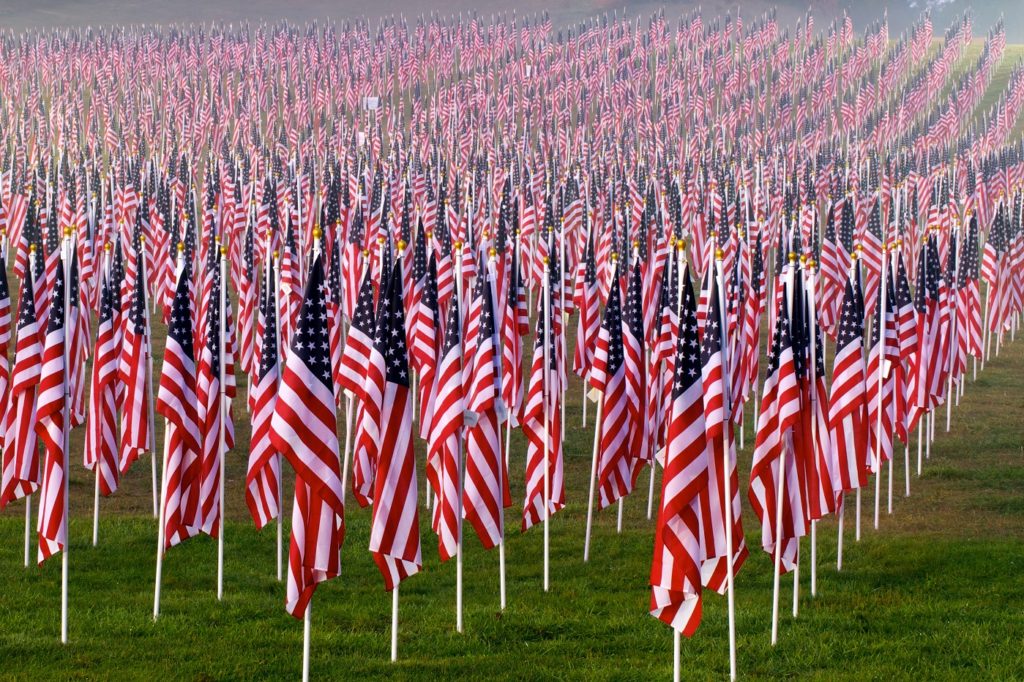Some events, not many, are so etched into memory that we think of time’s passage relative to them. In our personal lives, a marriage, conversion, or the birth or death of a child mark a clear before and after. In public affairs, we are familiar with the “Where were you when Kennedy was assassinated?” type of question. 9/11 was like that. Many of us have startlingly clear memories of smoke and ash, frantic phone calls, falling bodies, and the dread of wondering how many more attacks might await. Twenty years on, the images remain. For others, persistent illness, an empty spot at the table, and lingering wounds—visible or not—may be especially grievous on this day of remembrance.
Something changed that day, and, indeed, occasioned a chain of events—deployments, death, surges—bringing death and destruction in their wake. It is natural for us to think in terms of pre- and post-9/11.
9/11 was the “The End of ‘The End of History’”: a reminder that liberal democracy, secularism, and free markets were not simply the new constant or inevitable state of world affairs. Post-9/11, the country and culture changed, in ways large and small. Today, some see these changes as enduring, while others proclaim that the 9/11 “era is over.” However, despite the various interpretations, one term of description used again and again was “unthinkable.” The events of that day were unthinkable.
“Unthinkable” is an ambiguous term. It can mean merely that which we have not yet thought about, something more like “unthought”; or, it might mean that which is horrible and discomfiting, that which we prefer not to think about. It might convey moral disapproval, a taboo or a harsh judgment: that which is wrong to consider. All of these seemed to be in use in the descriptions of the attacks of that September day as “unthinkable.” However, there is a stronger meaning, too, more akin to “impossible”: that which cannot occur.
Start your day with Public Discourse
Sign up and get our daily essays sent straight to your inbox.Why cannot? What in human affairs leads us to think that the unexpected horror cannot happen, must not be recognized as possible? The end of history has not happened yet, nor will it until history ends, meaning until God returns (if such a story is true, as I think) or humans are no more. Until such a time, however stable and settled things may seem, nothing really is unthinkable, alas.
We honor those lost that day, and those lost since, just as we respect those who mourn. We do so in various ways: memorials, speeches, silence, roll calls, or a phone call. We also honor that terrible day by acknowledging its reality, its possibility, its thinkability, granting that such things can happen again. Ordinary politics and citizenry continue on, as does our attempt to understand, to do and live better, and to seek the truth. Public Discourse exists to calmly and reasonably seek the truth of things, knowing that the free pursuit of truth is a genuine blessing of liberty, not one to hold cavalierly, even while recognizing the difficulty of doing so.
In this featured collection, we republish several previous essays which are helpful guides to that pursuit. And we remember.
The Essays
On the tenth anniversary of 9/11, Wilfred McClay considered how to best memorialize September 11th, pondering how to recall the grief of individuals without overlooking a collective and unified sorrow. Ten years later, the question not only remains but has perhaps intensified. How do we act as a people, a nation, in which some things are held in common?
A nation is not a family, but neither is it merely an aggregate of individuals with only some minimally shared alliance. In “Democracy, Foreign Policy, and American Values,” Carson Holloway asks about duties to America, about the balance of self-interest and global membership. The twentieth anniversary of 9/11 comes upon an ignominious withdrawal from Afghanistan, with pointed questions about the war, intervention, and nation-building. Holloway asked some of those questions nearly ten years ago.
So, too, Paul Carrese urges prudence in foreign policy. Ideology makes fools, and Carrese suggests we learn from the moderation and flexibility of George Washington in guiding our affairs.
Yet prudence is not a permission slip for cowardice or immorality. We have duties and responsibilities. In a recent essay, Humira Noorestani asks Americans to remember the natural rights of all, including Afghan women, and insists that it’s not enough to insist on rights if we fail to provide the “hard security” to back up our declarations. Political reality is not like high school student government—if only all our representatives understood this—and we cannot examine the last twenty years without examining violence and war.
Allen Guelzo knows that war does not exist on paper, but in cold reality, and its complexity can sometimes bedevil our ability to judge the justice or injustice of war. The fog of war goes beyond the battles and into our reflections, even as we must soberly reflect. But complexity does not require sinking into unintelligibility, as Andrew Latham insists in his defense of Just War Theory and criticism of Just Peace wishful thinking.
9/11 was not really so long ago, and we live with its effects still. Today, we remember and grieve, but we continue to think and to act. Nothing will relieve us of that duty until the end of days.











